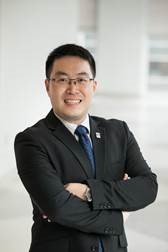Marketing Seminar (2020-06)
Topic:Open the Black Box of AI Voicebots in Sales Call Automation: Evidence from Audio Data Analytics and Field Experiment
Speaker:Siliang (Jack) Tong, Temple University
Time: Thursday, 27 August, 9:00-10:30
Microsoft Teams:
https://teams.microsoft.com/l/meetup-join/19%3aade8e46052fa419798afcaf6aad0ad20%40thread.tacv2/1598001269790?context=%7b%22Tid%22%3a%2280b7b804-c47e-4119-8274-0f6835b8e89f%22%2c%22Oid%22%3a%22dae73385-f69d-4688-a153-ff18e3659b00%22%7d
Abstract:
Artificial intelligence (AI) voicebots have immense business potentials for automating customer services in call centers. Yet, companies are dubious about the black-box nature of voicebots, and extant research provides little empirical evidence for the underlying mechanisms on how voicebots can converse with customers in automated service tasks. This study exploits a field experiment with customers who are randomized to receive an outbound sales call from either a voicebot or human agent. It utilizes audio data analytics to extract agents’voice features (i.e., amplitude, speed, and pitch) and speech content (i.e., selling adaptivity) to examine how the voicebot converses with customers. The results show that the voicebot can outperform general human agents in terms of purchase rates and customer satisfaction because of two distinct mechanisms. The first mechanism is related to how to say: the voicebot has a more stable voice, i.e., lower volatility in amplitude and speed, than human agents. The second mechanism is about what to say: the voicebot tends to display a higher selling adaptivity to cater to individual customer needs in the speech content. The former mechanism accounts for more variance in the incremental purchase responses to the voicebot than the latter mechanism. Additional optimization simulations based on heterogeneous customer responses indicate that assembling human agents and the voicebot together can achieve more sales revenues than using only human agents or the bot alone. These findings have useful implications for managers who can leverage sales call automation and unstructured voice data to boost firm performance in the new AI era.
Introduction:

Siliang (Jack) Tong is a doctoral candidate at the Fox School of Business, Temple University. He joined the Ph.D. program in 2016 with a concentration in Big Data Analytics and Marketing. He is a recipient of the prestigious Presidential Fellowships and a research fellow of the Global Center on Big Data in Mobile Analytics. Siliang is an empirical modeler who is interested in the substantive areas of artificial intelligence, mobile app marketing, and sharing economy. He is very active in research as his works were presented in multiple occasions such as AMA conference and ISMS Marketing Science conference. His research is published in Marketing Science and the Journal of the Academy of Marketing Science. Before joining the academia, Siliang holds multiple managerial roles at international hospitality groups (Hilton Worldwide and Wynn Resort) and he earned the MBA degree from the University of Wisconsin-Madison.
Your participation is warmly welcomed!


